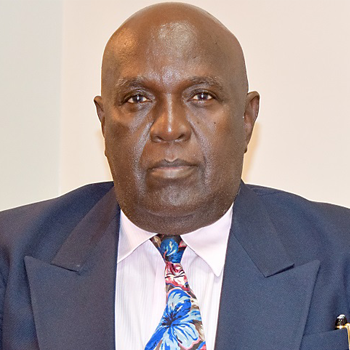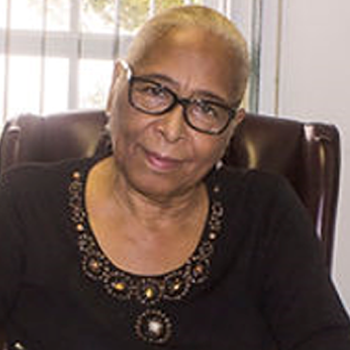The History of the Ombudsman
The office of the Complaints Commissioner (Ombudsman) of the Turks and Caicos Islands Government is regulated in the accordance to the Complaints Commissioner (Ombudsman) Ordinance of 1987 which was since amended in 2015. The Ordinance was established to make provision for the appointment and functions of a Complaints Commissioner for the investigation of administrative action taken on behalf of the government and statutory bodies.
Since the establishment of the Office of the Complaint’s Commission, there has been five (5) pass Complaints Commissioner:






Our Role – Commissioners Functions
The Complaints Commissioner (Ombudsman)
The Commissioner is appointed by the Governor according to section 99 of the Constitution of the Turks and Caicos Island after consultation with the Premier and Leader of the Opposition. The Commissioner has extensive powers under the Complaints Commissioner (Ombudsman) Ordinance 2015 to investigate complaints, both from individual complainants and matters of the Commissioner’s Own Motion where there is an alleged systemic failing on a matter of national public importance. The Commissioner plays a lead role in Own Motion Investigations, from conception to conclusion, and also in high profile or sensitive cases, either dealing with them personally or giving strong guidance to the Investigative Officer on such matters. With regard to conducting investigations and obtaining both oral and written evidence, the Commissioner has the same powers as a Magistrate, including the power to issue subpoenas if necessary and appropriate.
Administrative Officer
The Administrative Officer assist the Commissioner with the preparation of financial records, budget preparation to ensure that daily operation of the Commission is managed effectively.
Senior Investigative Officer
The Senior Investigative Officer is responsible for the oversight of the day-to-day administration of the Investigative Unit of the Complaints Commission.
Manage and assist personnel of this unit in ensuring that the Commission effectively and efficiently discharges its mandate as an investigative Unit through: The promotion of integrity, honesty and good faith in public life of the TCI; The robust implementation of and compliance with the provisions of the Code of Conduct for Persons in Public Life, Complaints Commission Ordinance
Provide legal advice and guidance to the complaints commissioner. Conduct or oversee the conduct of investigations and inquiries into all contraventions or breaches of the Code of Conduct, provisions of the Constitution (relevant to the Commission) and the Complaints Commission Ordinance.
Conduct and manage investigations into allegations of maladministration and to participate in good governance reviews of public bodies.
Act as the Commissioner's liaison with other agencies on matters referred for further investigations.
Manage the inflow of information, reports and complaints to the Commission and establish and manage an effective system to this effect.
Provide expertise and advice on all investigative related issues and function as a lead member of the investigative team reporting to the Complaints Commissioner.
Investigative Officer
The Investigative Officer receives, investigates, reports and resolves complaints within the procedure, parameters and time frame established by the Commissioner and also assist in the Commissioner’s Own Motion Investigations (OMI’s). The Investigative Officer is also responsible for providing statistical reports as required by the Commissioner and to prepare and deliver educational workshops to civil servants on the role and function of the Complaints Commission.
What is Maladministration?
Maladministration is inefficient, bad or improper administration, and includes:
- Unreasonable delay in dealing with the subject matter of an investigation.
- Abuse of any power (including any discretionary power): or
- Administrative action that was –
- Contrary to the law;
- Unfair oppressive or improperly discriminatory or based on procedures that are unfair, oppressive or improperly discriminatory;
- Based wholly or partly on a mistake of law or fact or irrelevant grounds;
- Related to the application of arbitrary or unreasonable procedures; or
- Negligent
What we can investigate?
Some of the questions that the Ombudsman consider when determining whether a Government (Departments, Boards, etc.) followed appropriate laws, policies and processes in clear, consistent and fair ways. The office will only seek to address complaints of an improper nature which include:
- Grievances and conflicts in the workplace.
- Performance issues.
- Discrimination on the basis of race, sex, age etc.
- Harassment and corrupt conduct.
- Maladministration matters,
This is when a Government Department or Authority makes a wrong decision, acts outside its statutory authority and fails to take required action. Some examples are:
- Unnecessary delays, bias, negligence.
- Failure to follow proper procedures.
- Wrong decisions and improper service.
- Discourtesy
What you can expect from us?
When a report is received, an investigating officer writes it down and gives it a case number. The investigating officer notifies the commissioner about what happened. Once the investigator gives the commissioner all the facts, the commissioner decides if this is something our team should look into and gives the investigation the go-ahead.
Once the Commissioner gives the go-ahead, the Investigator will prepare and send a Notice of Investigation, or "opening" letter, signed by the Commissioner to the government entity against which the complaint was made. The investigator will also send an email to the person who made the complaint to let them know that we will be looking into their complaint and giving them updates soon. A Notice of Investigation should be sent out the same week that the Commissioner decides to investigate.
Once a Notice of Investigation has been sent to the government body, investigators can start setting up meetings, interviews, and other things related to the investigation. A copy of the letter is added to the case file as well. Except for the simplest complaints, the inspector should meet with both the person or organization being complained about and the person making the complaint as soon as possible.
The person who filed the report should be kept up-to-date on what's happening with the complaint. The Investigative Officer updates the Complainant by sending an email. During an investigation an Investigative Officer from time to time may request additional information via email from the Complainant. This tends to be the case in more medium to high profile investigations or special reports (see below). When an investigation is completed, the Investigative Officer will write their findings in a "Closing Letter" which is vetted and signed off by the Commissioner. Once the Investigation is completed and the recommendations are made as part of the final conclusion, this letter goes to the Head of the Government Agency to implement or rectify the matter based upon the recommendation. The Complainant will also receive a copy of this letter outlining the our findings, conclusion and recommendations. Both must be sent within a week after the study is finished. (These letters are usually mirror images of each other.)
Contact, Complaints Commission Ordinance
Lorem ipsum dolor sit amet, consectetur adipiscing elit. Integer adipiscing erat eget risus sollicitudin pellentesque et non erat. Maecenas nibh dolor, malesuada et bibendum a, sagittis accumsan ipsum. Pellentesque ultrices ultrices sapien, nec tincidunt nunc posuere ut. Lorem ipsum dolor sit amet, consectetur adipiscing elit. Nam scelerisque tristique dolor vitae tincidunt. Aenean quis massa uada mi elementum elementum. Nec sapien convallis vulputate rhoncus vel dui.
